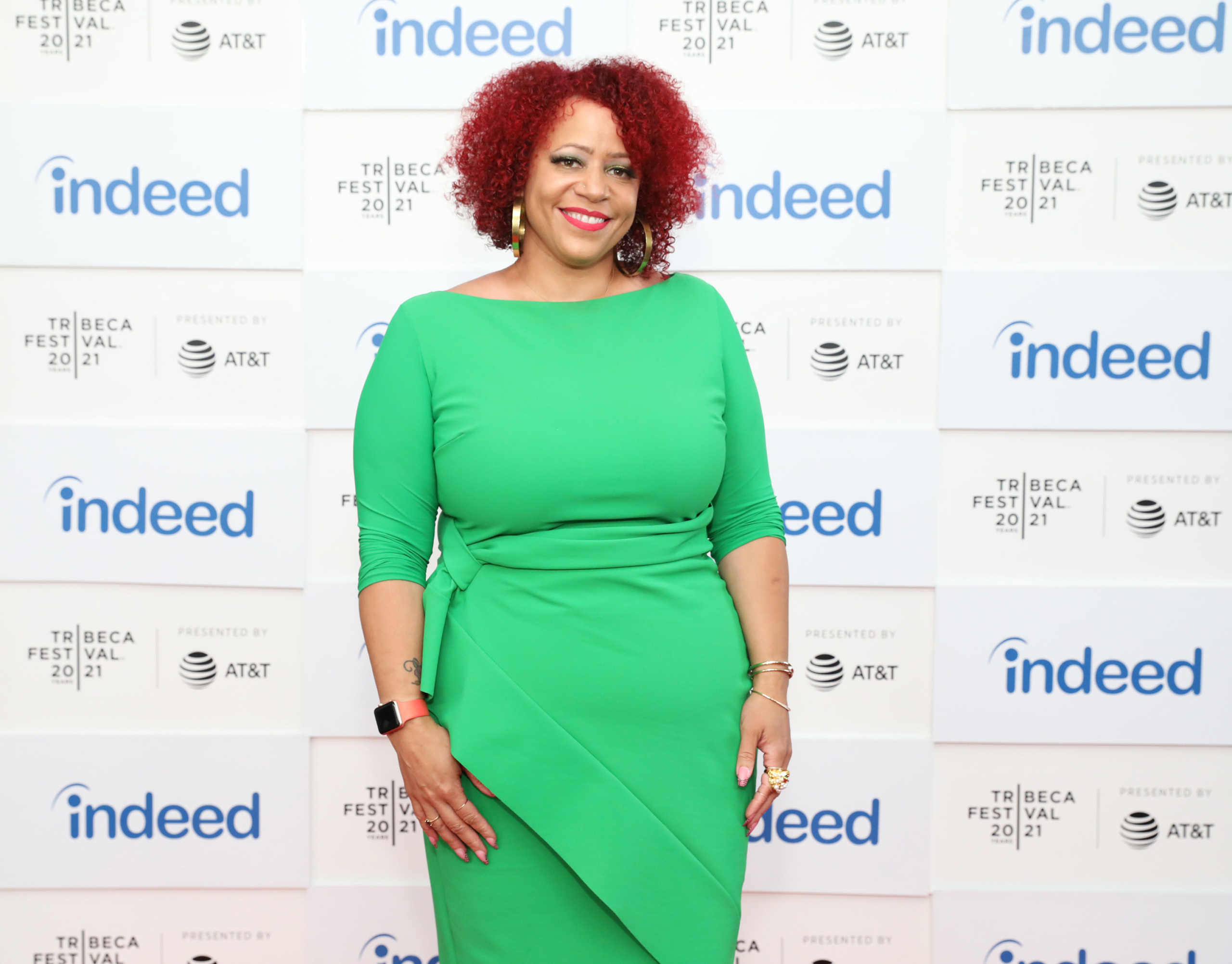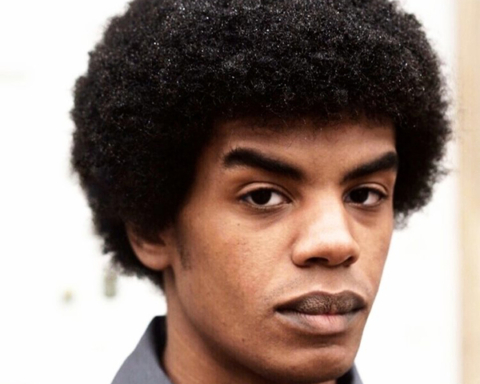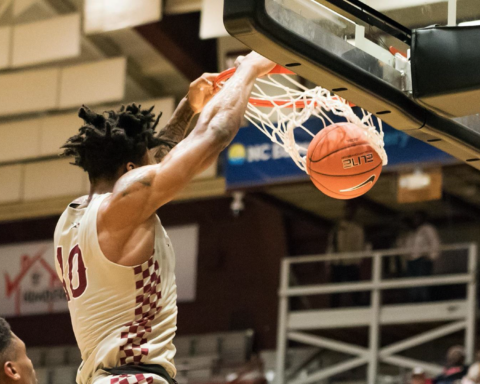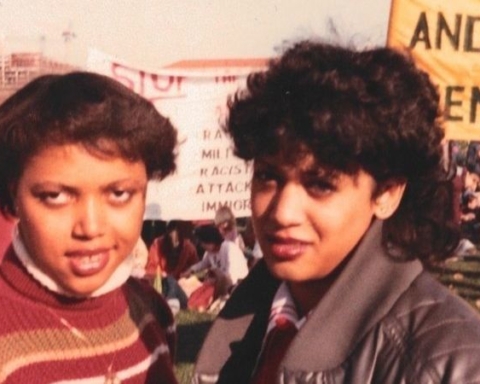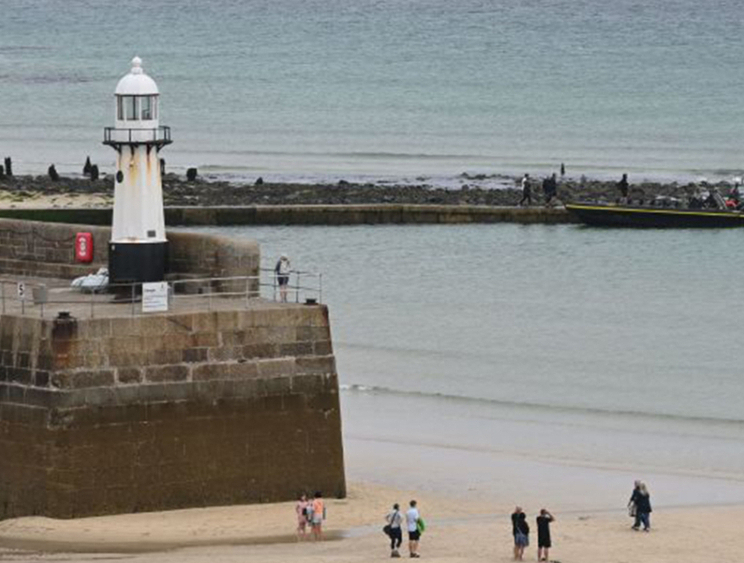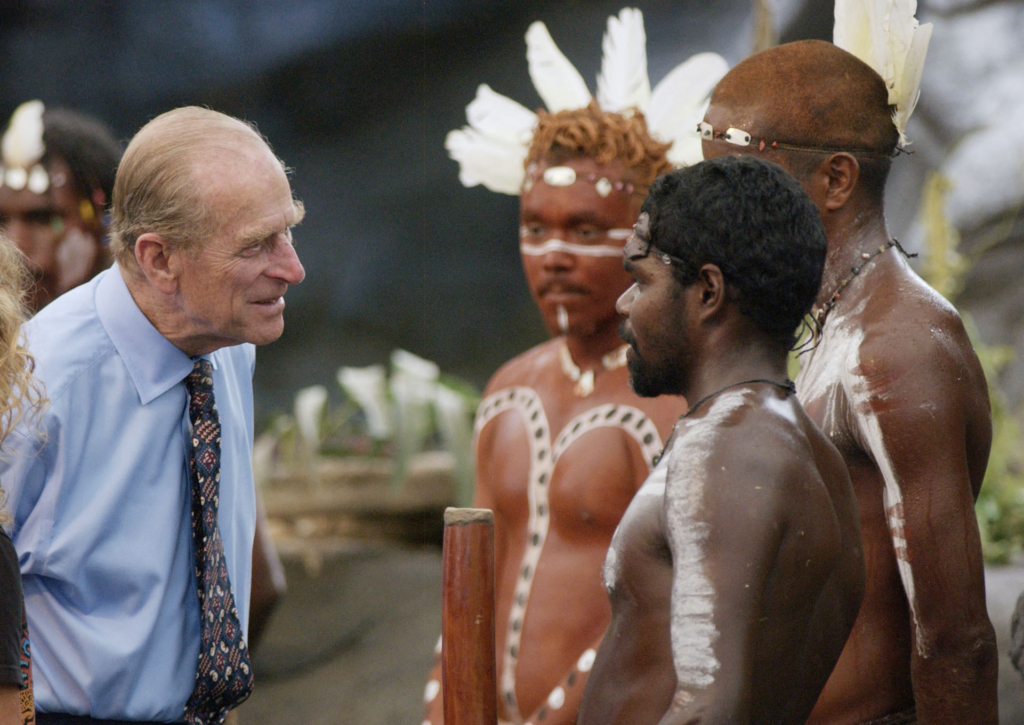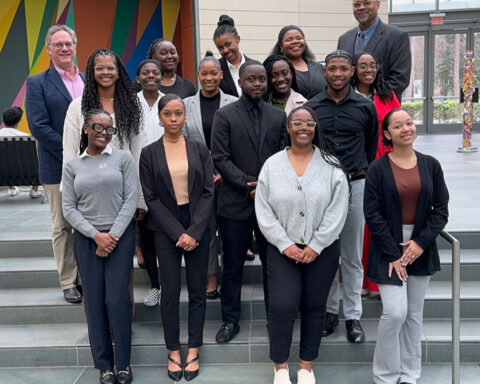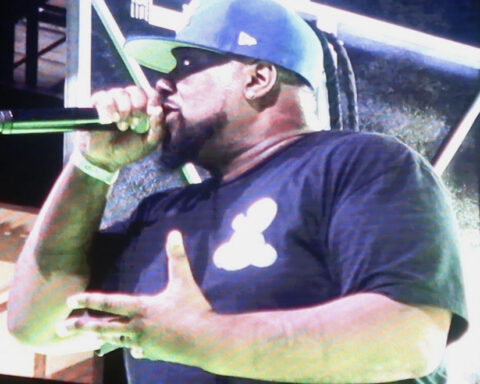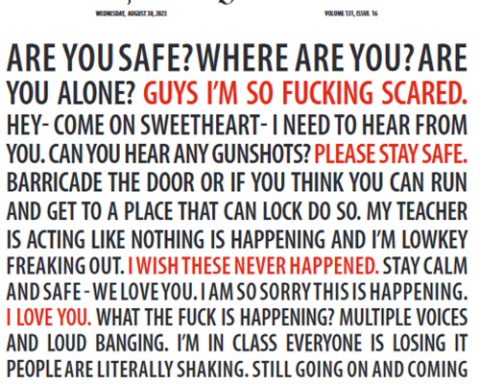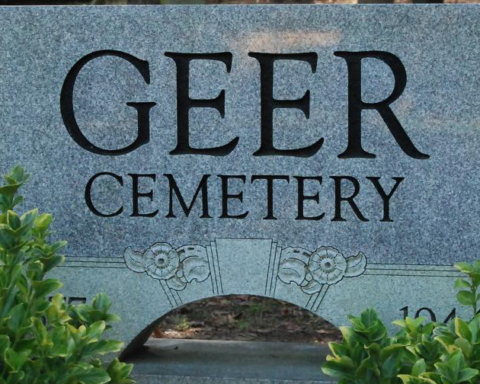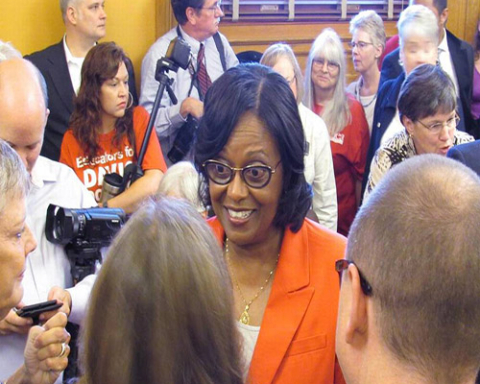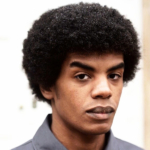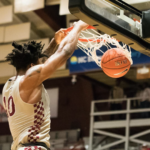Home is where the heart is, and Nikole Hannah-Jones was eager to return home to her alma mater, the University of North Carolina at Chapel Hill, and start educating the next generation of journalists. But before she got there, her tenure approval was blocked by the university’s politically-appointed Board of Trustees as well as a conservative donor, amid controversy over her Pulitzer Prize-winning 1619 Project for the New York Times.
After a nearly two-month battle marked by weeks of legal action and joint student-faculty protest, the board finally reconvened, granting Hannah-Jones tenure in a 9-4 vote. Hannah-Jones declined the offer, deciding her heart was now in a different home, one that doesn’t stifle Black talent.
In August, Hannah-Jones will join the faculty of Howard University as the inaugural Knight Chair in race and journalism. In an interview with The Times, she said she always wished she had attended a historically Black college or university (HBCU). Howard’s legacy of Black writers is what drew her to the institution — from Zora Neale Hurston, founder of the campus paper the Hilltop, to close friends Ta-Nehisi Coates and Jelani Cobb.
“That experience that they had there was just something I’ve thought a lot about,” said Hannah-Jones. “What would it have been like to be a Black student, a Black aspiring writer who has grown up not in a place that seemed to exist in opposition to me and what I wanted to do, but that was actually built there to serve the type of Black writer that I wanted to be?”
In establishing the Center for Journalism and Democracy, Hannah-Jones will bring a new vision — and new visibility — to Black journalists at the university and HBCUs across the nation. Students and professors are ready for her mission, hoping for increased investment and more opportunities in an industry that has long favored graduates from elite, predominantly white institutions (PWIs).
Coates, the award-winning essayist and bestselling author of “Between the World and Me,” will also be joining Howard University’s faculty, occupying the Sterling Brown Chair in the English department. Per the university’s website, the appointments are supported by a nearly $20 million donation from Knight Foundation, the John D. and Catherine T. MacArthur Foundation and the Ford Foundation as well as an anonymous donor.
“In the tradition of the Black press, the Center for Journalism and Democracy — which very clearly is linking those two things; journalism is the firewall of our democracy — we’re going to train journalists to rise to the urgency for which they need to be covering what’s happening in our country right now,” Hannah-Jones said. “We’re going to work to strengthen investigative and accountability reporting, teach journalists how to use archives, how to really infuse their reporting with that historical understanding that I think is so critical.”
The center will support programs at HBCUs across the U.S., Hannah-Jones said. Jennifer C. Thomas, an alumna and associate professor, said that while Howard may no longer be “the best-kept secret” among universities, now is a great time to provide support to lesser-known HBCUs. And the controversy over Hannah-Jones’ journalism and critical race theory only underscores the urgency.
“We are the truth-tellers,” said Thomas. “People can argue what they may not like, but they can’t argue against what the truth is. The 1619 Project was the truth…. A lot of people don’t like to hear that truth. That’s what we saw that has unraveled at UNC, that’s why it’s so important to have journalists of color to help tell our stories.”
Rising senior Donovan Thomas believes that Hannah-Jones’ arrival aligns with the mission of the Ida B. Wells Society, a trade organization that has its only student chapter at Howard. Named for the posthumous Pulitzer Prize winner, the Ida B. Wells Society was founded by Hannah-Jones, Ron Nixon, Topher Sanders and Corey Johnson with the intent of fostering and training reporters and editors of color in investigative journalism.
Thomas, 20, said he hopes that moving forward, when HBCU students apply for positions at various media outlets, newsrooms will no longer say “we do not have the skills or qualifications to be in the room.” A print and digital journalism major, Thomas is working with the New York Times as an investigative intern through a partnership with the society.
According to a 2018 report conducted by Voices, a student program from the Asian American Journalists Assn., America’s top newsrooms select internship candidates from a small circle of colleges. Papers like the New York Times and Wall Street Journal tended to select from the top 1% of schools referred to as “Ivy Plus”; others selected from “elite” universities (such as Northwestern and NYU) and “highly selective schools,” but largely bypassed HBCUs.
Ingrid Sturgis, chair of Howard’s Department of Media and the faculty advisor to the society, believes the new hire will not only expand internships but also change the state of play.
“What happens is that our graduates get internship after internship after internship, and it takes them longer to land a permanent job,” Sturgis said. “I’m hoping Nikole’s hire gives our program a little bit more heft so that people know that when we graduate our students, they are fully formed journalists. They can take on any opportunity, just like any of the students from the Ivy League, or any of those other journalism programs who received far more credibility than our program does.”
To that end, Hannah-Jones argues that journalism must become more democratic and less focused on the connections afforded by “elite” institutions, understanding that talent is evenly dispersed but not evenly noticed. She hopes to provide students with a network that “they deserve to already have but often don’t.”
“What I’m hoping is that we can try to even the playing field a little bit. When someone goes to a school like Harvard or Columbia to recruit people, it’s a shorthand for them,” Hannah-Jones said. “They don’t feel that way about our institutions. That means that yes, we have to get noticed in the first place, we do have to work twice as hard and we have to oftentimes be better.”
She continued, “There are a lot of Black kids, brown kids who have talent, ambition and motivation, but couldn’t afford to go to an elite school, didn’t want to go to an elite school, had made other choices — and we have to expand our circles out to them. We treat diversity as something that feels good, politically correct or even morally the right thing to do. But my argument is: This is how you actually produce great journalism. Diversity is how you have accurate coverage that actually reflects the country we live in.”
Donovan Thomas hopes Hannah-Jones’ arrival will encourage students to pursue bigger opportunities as well as be more critical of the institutions that are supposed to serve them. That includes a close look at the university’s support of the Hilltop, which Thomas once led as editor in chief.
“The Hilltop was once a daily newspaper,” Thomas said. “It was the only HBCU paper to ever publish daily, and the Hilltop was twice named the best collegiate paper in the country… I think in recent years the university has disinvested from our student newspaper.”
Well before Hannah-Jones’ arrival, Howard invited numerous Black public figures and leading professionals to teach. Joy Reid gave virtual journalism lectures this past year, and this month Phylicia Rashad joined as dean of the College of Fine Arts — days after she came under fire for tweeting her support of Bill Cosby.
“I think that with the Phylicia Rashad situation, we can all decide on our own whether or not we believe it was genuine, but I think that there is a lot of intergenerational teaching that goes on in Black spaces,” said recent Howard graduate Ahmari Anthony, 22. “If elders are willing to learn from us, we have a lot to teach them too.”
Anthony, who earned her B.A. in journalism with a minor in English, would also like to see Hannah-Jones and Coates support faculty in the School of Communications in revitalizing the Hilltop.
“Doing beat reporting, investigative work, was not appreciated as much in our classes,” she said. “They kind of thought was a thing of the past. I really hope that the two of them and their work shows other people our age that journalism of that caliber is still important…. You can be a changemaker as a journalist.”
Hannah-Jones couldn’t agree more. She said she plans to teach students to question the tenets of the profession and the country — and to push back against the idea of representing both sides even if one side is lying.
“We’re in a very dangerous period,” she says. “We’re on the precipice of something, and it might not be very good.” She cited the insurrection on Jan. 6 at the Capitol, voter suppression and anti-critical race theory legislation, which she referred to as essentially “anti-free speech and memory laws.”
“Because our press corps is made up of people who have a faith that our democracy will hold, who can’t really imagine that in the end our institutions will not self-correct, who don’t understand the history and therefore understand the danger of the moment that we’re in, we need journalists who are actually trained to understand the country that we’re in and to report it with the urgency that it needs,” she said.
Ultimately, Hannah-Jones sees journalism as a form of activism, upholding democracy, fairness and equality and protecting the vulnerable against the powerful.
“If your concern is that some type of journalist, particularly coming out of a Black institution, is about justice journalism, then how are you defining the other journalism that’s being produced in white institutions?” she asks. “Through my center and my teaching, we’re going to be activist journalists in the same vein that all journalism is activism. No more, no less.”
____
Story by Ruth Etiesit Samuel
©2021 Los Angeles Times. Visit at latimes.com. Distributed by Tribune Content Agency, LLC.

